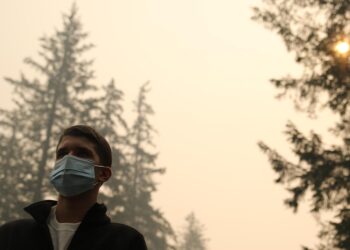Understanding the Basics of Global Warming: A Beginner’s Guide to Climate Change
Global warming is a complex and often misunderstood phenomenon that has significant implications for our planet and future generations. In this beginner’s guide, we will explore the basics of global warming and climate change, helping you to better understand the science behind this critical issue.
What is Global Warming?
Global warming refers to the long-term increase in Earth’s average surface temperature due to human activities, primarily the burning of fossil fuels and deforestation. These activities release greenhouse gases, such as carbon dioxide and methane, into the atmosphere, trapping heat and causing the planet to warm.
How Does Global Warming Affect the Planet?
The impacts of global warming are far-reaching and include rising sea levels, melting ice caps, more frequent and severe weather events, and disruptions to ecosystems and wildlife. These changes can have serious consequences for human health, food security, and the economy.
What Causes Global Warming?
The primary cause of global warming is the burning of fossil fuels, such as coal, oil, and natural gas. When these fuels are burned for energy, they release carbon dioxide and other greenhouse gases into the atmosphere. Deforestation also contributes to global warming by reducing the planet’s ability to absorb carbon dioxide.
What Can We Do to Address Global Warming?
There are several actions that individuals, communities, and governments can take to mitigate global warming and reduce its impacts. These include transitioning to renewable energy sources, reducing energy consumption, supporting sustainable agriculture practices, and advocating for policies that limit greenhouse gas emissions.
Common Misconceptions About Global Warming
There are many misconceptions about global warming, including the belief that it is a natural phenomenon or that it is not caused by human activities. In reality, the overwhelming majority of scientists agree that human activities are the primary driver of global warming, and that urgent action is needed to address this issue.
The Role of Climate Change in Global Warming
Climate change refers to long-term changes in temperature, precipitation, and other weather patterns that are influenced by global warming. As the planet warms, we can expect to see more extreme weather events, shifts in ecosystems, and disruptions to food production.
Why Should We Care About Global Warming?
Global warming poses a significant threat to the health and well-being of people around the world, as well as to the planet’s ecosystems and wildlife. By taking action to address global warming, we can protect the environment, safeguard public health, and ensure a sustainable future for generations to come.
Conclusion
In conclusion, global warming is a critical issue that requires urgent action from individuals, communities, and governments around the world. By understanding the basics of global warming and climate change, we can better appreciate the importance of taking steps to reduce our impact on the planet and protect the environment for future generations. Together, we can work towards a more sustainable and resilient future for all.
By following the guidelines outlined in this beginner’s guide, you can gain a better understanding of global warming and its implications, while also learning how you can contribute to efforts to address this pressing issue. Together, we can make a difference in the fight against global warming and ensure a brighter future for all.












